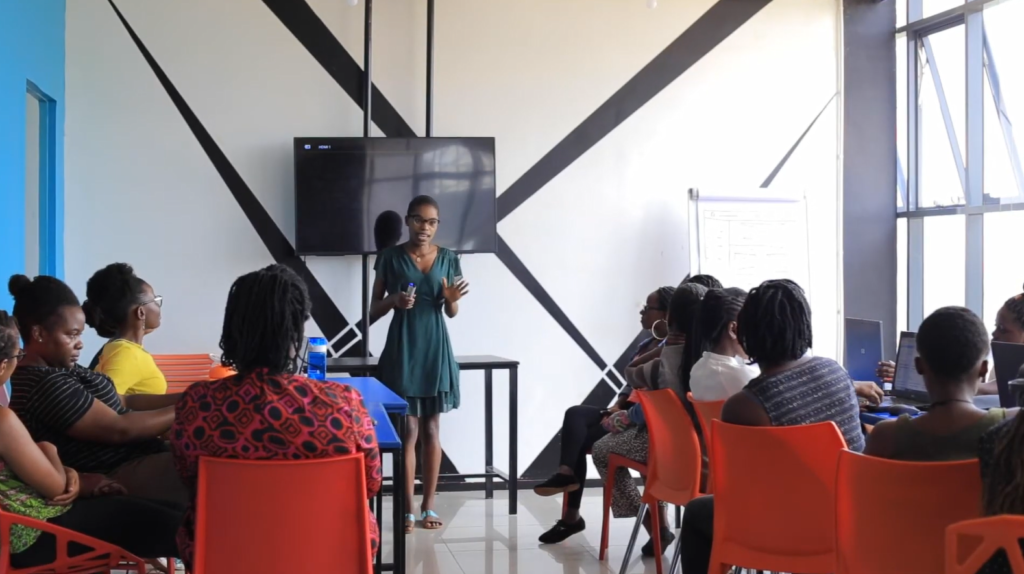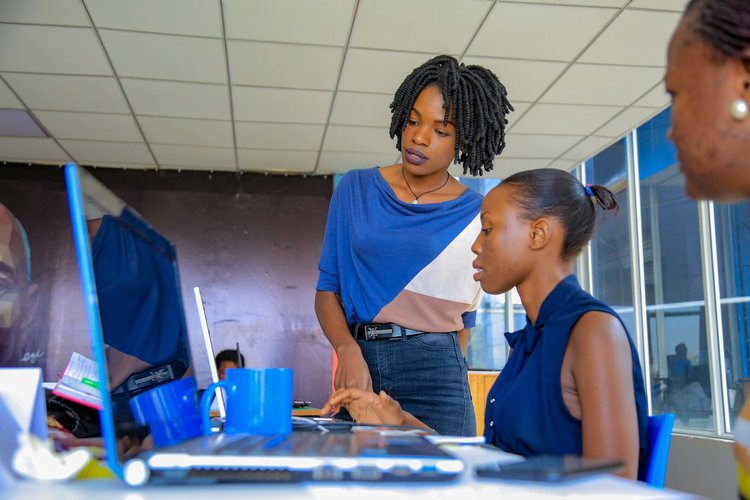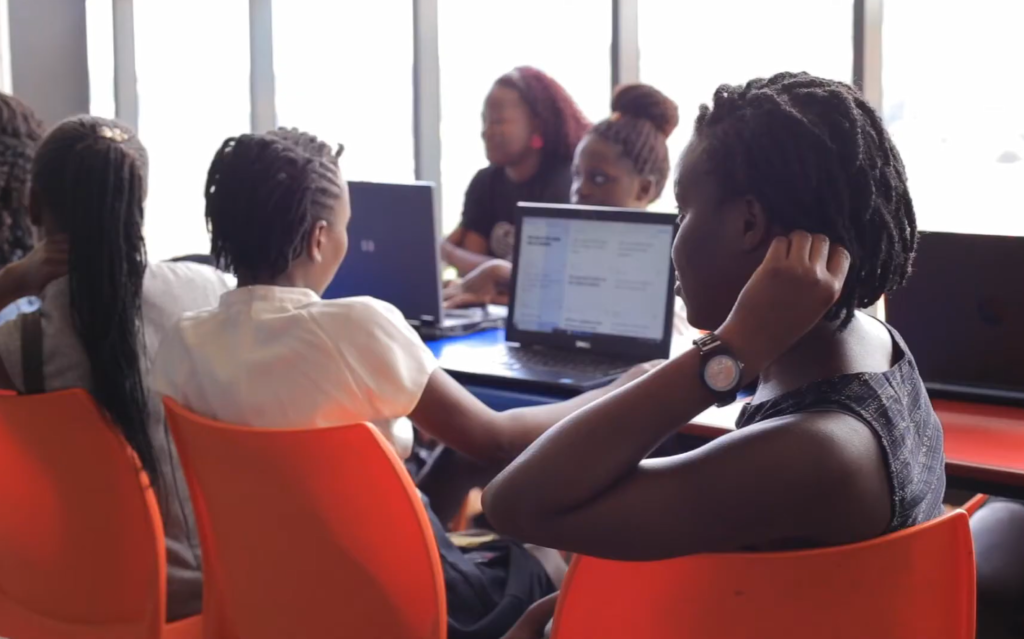You do not easily meet women geeks in Uganda’s capital Kampala. However, in this cozy room, at a residence in the suburb of Ntinda northeast of the city center, a group of women sit looking fixedly at their instructor and computer screens.
At the front of the room, a projector beams a display onto the wall, where the instructor seamlessly reveals a myriad of numbers and characters. These girls are learning to code and it is the first-ever women-only class.
It has been running since 2019, and it takes two cohorts a year. Each group is trained for 10 weeks before graduating.

Women attend a coding class as part of the Code Queens training project.
Evelyn Celine Birungi, 24, formerly a graduate of Business Computing joined the class in 2022, at a time when she had made several attempts at jobs and personal business without success.
Interestingly, though Birungi’s educational background would mean that computing is a part of her trade, she had never been interested.
“I had very little exposure and interest in technology … our university class ratio had more girls in business in comparison to the boys who felt more inclined to do computing,” Birungi explained noting that technology was seen as a male domain.
She would later join the coding class in the quest for an alternative after learning of an opportunity to help young women excel in technology.
After eight weeks at the school, Birungi excelled and started to bid on competitive job offers from both local and international organizations.
“I ended up taking the opportunity at a US-based organization. I wanted to work remotely like my friend and also earn in dollars,” she happily explains.
The program called Code Queens is run by Educate the Children, a women-led non-profit organization using innovative approaches to the interest young women in the region in science and technology.
The purpose is to unleash the potential of these young women, fostering their creativity, confidence, and ability to pursue rewarding careers in the digital realm.
“We don’t care about the educational background or age: we believe in giving every girl a chance. As long as you’re willing to learn, we take you in,” Prossy Wanyana, the Head of Programs Code Queen explains.

An instructor speaks to a learner during a coding training.
With its rigorous training approach, the coding queens are expected to take part in the hackathon that solves a real-life challenge for business as the last assignment ahead of graduation in the 10th week.
In this Wanyana says the trainees are enabled to carry forward the task of innovating and creating a digitally inclusive environment that can inspire women to join.
“We train our girls in coding, app, and web development all from scratch. We also support them with soft skills to develop other attributes such as a positive mindset and work readiness.” Wanyana explains.
Uganda’s female low uptake of technology is also demonstrated in datasets at the Uganda Bureau of Statistics that suggest that the majority of women-owned enterprises were concentrated in the trade sector (44%); education, health, and social work (49%); and accommodation and food services (65%), indicative of the strong influence of the predominant patriarchal culture in the Ugandan society where enterprises involving technical skills are traditionally ’male’ dominated sectors.
A step in the right direction
Yet the Digital Uganda Vision which is a National Policy and Strategic Framework on innovation and technology suggests that the country is working to digitalize its economy. In this, it is looking to build a digitally enabled society to create positive social and economic impact through technology-based empowerment.
With current statistics, this policy would exclude women. The World Wide Web Foundation has noted that only 19% of Ugandan women are online, compared to 27% of Men. The report further highlights that Uganda by far has the largest gender gap in internet access among the countries included in the survey of women’s online experiences.
“We recognize the need to have more women in the sector and one of our objectives is to promote access to and utilization of information technology by the special interest groups,” Florence Mukakunsi the communications manager for National Information Technology Authority of Uganda says, explaining that the entity is supporting grassroot responses to gender digital inclusion.

A trainee tries out instructions on their screen during a coding training.
Preparing for this future
All over Uganda, many organizations are coming up with programs to help bridge or rather close the digital divide. From advocacy to implementation, there is a surge in the numbers of girls in the tech industry and STEM fields.
“We have no excuse to not actively participate in STEM fields, long gone are the days of struggling with cables and wires. So, we can’t claim that its hard labor,” says Angela Mirembe, the founder at Coding in Heels, an organization looking to include young women and girls in technology.
While efforts by organizations are being made to close the gender digital divide, the education system in Uganda is still grappling with access to ICT infrastructure in rural areas.
“Targeted programs are needed to show women, especially at young ages, that coding isn’t a guy thing; it can be creative, collaborative, and very female-like,” Wanyana explains.
© 2022 - Media Challenge Initiative | All Rights Reserved .


